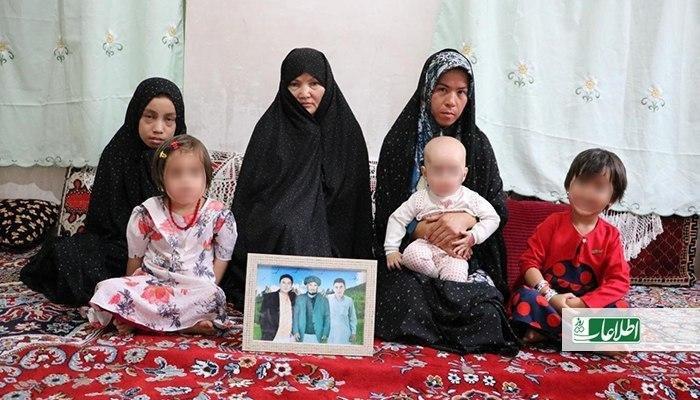“The government must not compromise blood of our loved ones. We call on the government to sentence perpetrators of civilian casualties to death,” says Fatima who lost her father and brothers in Afghan war. Gravely concerned about a possible return of the released militants to battlefield, she strongly opposes release of the Taliban prisoners.
Though development in peace talks with the Taliban is widely welcomed and makes headlines, families of war victims feel painfully uncomfortable when the government gives concession to Taliban group. In latest developments, the government has released nearly 5,000 Taliban prisoners, including 80 prisoners, who are behind high profile complex attacks killing dozens of civilians across Afghanistan.
Shaikh Kassa and his son, Ramazan Ali, were killed in August of 2019 after a bomb attached to a motorcycle went off while they were selling vegetables beside street in PD9 of Herat city.
The blast killed four civilians and wounded more than 20 others.
The nine-year-old Sahar, who is Ramazan Ali’s eldest daughter, describes the blast as shocking. “I was at home when the bomb went off. I went out there and got to know that my father and grandfather were martyred. I am missing my father very much.”

It was not the first and perhaps would not be the last loss that this family suffered in the ongoing war intensified by the Taliban. Talib Hussain, another son of Shaikh Kassa, who served the Afghan army, was killed around five years ago in the battle against Taliban in the northern Kunduz province. According to Fatima, Talib Hussain was killed at age 25 and had served the military for three consecutive years in Kandahar, Helmand, and Kunduz provinces. “They called my father and told that Talib Hussain was martyred. It was the most difficult moment in our lives. We passed many days in shock of my brother’s death.”
The family is legally entitled to receive government allowance, primarily for Talib Hussain’s military services and losing two of its members in an explosion but they have not received any allowance paid by the government.
Last year, former Herat governor, Abdul Qayyum Rahimi, visited their house and promised them government help but in vain. “They firstly cut my brother’s monthly salary soon after he was killed while on duty in the army. No one asked and told us that why his salary was cut. We call on the government to pay us my brother’s salary for we do not have any breadwinner,” says Fatima.
The Ministry of Defense (MoD), last time when asked, told Kabul Now that families of the officers and soldiers disabled, died or killed while on duty will be paid the soldier’s salary and retirement pensions.
But this time the MoD refused to comment despite repeated requests by Kabul Now.
With all three men of the family lost in the deadly war, Marzia is now left alone to carry burden of a seven membered family, a responsibility which is surely more difficult to be undertaken by a female member of the family in Afghanistan’s patriarchal society.
The family is now living in the suburb of Herat city and hardly struggle to earn a living. They are living on help and aid given by relatives and neighbors.

Marzia Yaqubi lost her husband, Ramazan Ali, and her father-in-law while expecting her third baby. She wished her third child a boy as in man-dominated Afghan society boys can financially support a family. But her third child turned out to be a baby girl. “There were times when we did not have money to buy a bread and we could not afford to buy a pen and notebook for Sahar,” she says.
The nearly 20-year-long Afghan war has claimed thousands of young lives including those of civilians. In this war, the Taliban have committed serious crimes, killing and wounding thousands of Afghan forces and civilians including children and women.
Ms. Marzia is concerned about outcome of imbalanced peace talks with the Taliban. She expresses concern, saying that the rights of war victims might be compromised in upcoming intra-Afghan talks. “The Taliban made my children orphans. I do not forgive them; they must be held accountable [for what they did].”




